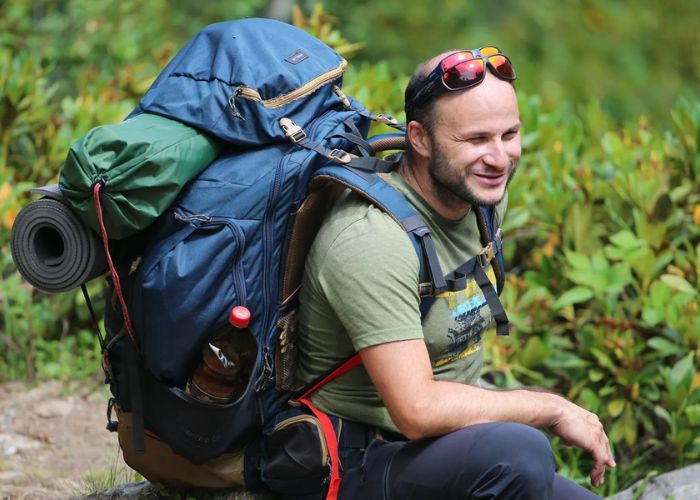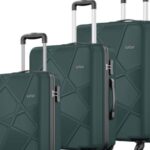As an experienced trekker who has spent more than seven years hiking through forests, up mountains, and across rough terrain, I know how important it is to pack correctly for any backpacking trip. If you make one mistake with your backpack, an amazing adventure can become a terrible nightmare. Here we will discuss “The One Backpack Mistake That Can Ruin Your Next Trek”.
Table of Contents
The One Backpack Mistake That Can Ruin Your Next Trek
The Weight of Your Backpack Matters
Through many mistakes on the trail, I’ve learned that overpacking your backpack is the one mistake that can ruin your whole backpacking trip.
The first few times I went trekking, I made this mistake a lot of times. It would make me pack too many things “just in case” I didn’t need them. With tent poles, extra socks, and heavy cooking gear in my pack, the weight kept going up. Then I got out on the trail; my overfull backpack slowed me down like a ball and chain.
The Impact of Overpacking
Those early hikes where I brought too much taught me a very important lesson: everything in your backpack is important. It hurts to gain pounds, and it hurts to lose pounds. The weight of your pack has a direct effect on how you feel on the trail. An overloaded pack makes you tired, hurt, and unhappy. Too much stuff on a trip has cut many of them short.
How much does your backpack really hold?
For multi-day treks, experts say your pack weight shouldn’t be more than 20% of your body weight. I try to keep my pack under 30 pounds since I weigh 150 pounds. Anything goes, like food, water, gear, and so on.
I always remember to “hike right, pack light.” Only put the most important things in your backpack. Check to see if you really need anything. Get rid of old tools, bulky camp shoes, and any gadgets you keep around “just in case.”
Pay attention to the basic things you need for backpacking, like a place to sleep, food, water, first aid supplies, maps, insulation, rain gear, and lights. Carefully pick out gear that is light, durable, and can be used for more than one thing. Everything should be used for something.
You should be very picky about what you choose; for comfort on the trail, you should leave some things behind. Leave no trace and don’t use single-use items that you don’t need. Repackage food to cut down on waste. When you go trekking with someone, share things like stoves and tents.
Minimizing Backpack Weight
To get your pack weight down, you need to do some research and buy good lightweight gear. For the weight savings, backpacking gear that costs more is often worth it. Spend most of your money on your “Big Three”: your backpack, shelter, and sleeping system.
Essential Gear for Backpacking
It’s important to train with your pack full. Hikes are a good way to get used to the weight. To start, go for shorter distances and make small gains in elevation. To get your body ready for more, slowly add more miles and more elevation.
Believe me, all of this work will be worth it when you get out on the trail with a light, well-balanced pack. Compared to a monster that’s too full, the difference is like night and day. Instead of tired and sore, you’ll feel strong and energized.
You can really enjoy the views, take pictures, and take it all in with a well-tuned pack. You won’t have to grit your teeth and grind out miles; you’ll have fun! When you pack right, it’s much easier to get through rough terrain and long distances.
Now that I’ve been backpacking a lot, I know how to pack well. I give careful thought to what gear and supplies I will bring on each trip. I use every bit of space in my pack and get rid of anything that isn’t needed.
Tips for Packing Light
- Choose lightweight gear: Bring only enough clothes for two to three days. Put bathroom items back in small containers.
- For backpacking, choose foods that are high in calories but not heavy, like nuts, jerky, and powdered meals.
- Minimize clothing: Do not wear heavy hiking boots. Instead, use trekking poles.
- Sit on your sleeping pad instead of the camp chair.
- Help each other with things like stoves, fuel, and tents while you’re camping.
- Don’t bring the book, electronics, camp pillow, or anything else that makes you feel good.
- Buy a good ultra-light backpack, tent, and sleeping bag.
- Move food and gear from big boxes to bags and containers that can be used again and again.
- Do not bring more first aid than you can use. A few bandages and medicines are enough.
- You should only bring water filters or treatments for as long as your trip lasts. Bring no more than 2 liters with you between sources.
- Leave the map and compass behind and use your phone to find your way.
- Wear clothes that dry quickly and can be used for both hiking and sleeping.
Conclusion
You will get better at finding exactly what you need as you go backpacking more often. It takes time and practice to look at your gear, guess how much it weighs, and pack in a smart way. The reward is huge.
I’ve improved the way I pack after 7 years of hiking in my home state and other places. Most of the time, my base pack weighs less than 15 pounds. I know what gear I need to be safe and comfortable in the backcountry without taking too much.
Try not to bring too much on your hike. Plan ahead of time, decide on a weight limit, and follow through on it. Talk to hikers who have done this before about your gear list. Bring only what you need, enjoy the hike, and don’t carry too much. You’ll be glad you did it.
Please let me know if you need help with anything else about backpacking or gear. I love helping other trekkers get ready for their next trip. I hope you like reading “The One Backpack Mistake That Can Ruin Your Next Trek”.

Laura is the lead writer at BackpackBeliefs.com, where she specializes in travel guides, cultural exploration, and sustainable tourism. With over 10 years of travel experience and a Master’s degree in Cultural Anthropology, Laura brings valuable insights to her readers.
For the latest travel tips and updates, connect with Laura on Facebook at @backpackbeliefs and Instagram at @backpackbeliefs. where she has 4,622 followers.






